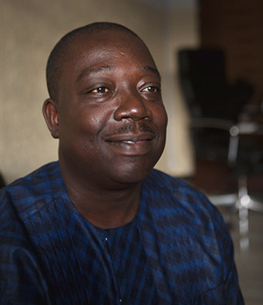Despite national efforts to curb the incidence of malaria, the disease continues to be a major public health concern in Ghana. In 2019, the country recorded approximately 12 million suspected cases – representing 42.8% of OPD cases and about 22.2% of total hospital admissions.
The National Malaria Control Programme (NMCP), which has oversight responsibility for malaria control in Ghana, reviewed its operation and developed a new Malaria Strategic Plan (MSP) for the period 2020 to 2024. The MSP acknowledges the enormous burden of malaria to national development and embraces a wholistic approach that involves the private sector contributing to malaria eradication efforts.
The battle against malaria is having another twist as COVID-19 is watering-down national efforts. COVID-19 has similar symptoms to those of early-stage malaria infection. COVID-19 is also creating barriers to health-seeking behaviour. Pregnant women don’t feel safe going for anti-natal services, as it is perceived catching the virus from the health facility environment is quite likely.
AngloGold Ashanti, a private mining company, has been contributing to reducing the malaria burden – not only among its workers but extending this intervention to 16 districts and thus protecting about 1.3 million people in Ghana.
The mining giant established AngloGold Ashanti Malaria Control (AGAMal) – a centre of excellence in malaria vector control in 2006. AGAMal with support from both AngloGold Ashanti and The Global Fund to combat HIV/AIDS, TB and Malaria; and in a private-public partnership with Ghana Health Service (GHS) is implementing indoor residual spraying to control the malaria vector, mosquitoes, in selected districts and Ghana Prison Service camps.
The programme has recorded some remarkable successes. The Upper West Region of Ghana, which has 11 districts, has recorded a decline in malaria incidence from 51% in 2010 to 11% in 2019 (MIS, 2019). Malaria prevalence in Obuasi, where the mine is situated, has been consistently been below 6% for the past four years.
COVID-19 initially posed a threat to malaria intervention. AGAMal had started its annual IRS operation when Ghana recorded its first COVID-19 case. The IRS operation was then placed on hold for three weeks to prevent community spread and also review operational methodologies. AGAMal reviewed its operational protocols and increased infection prevention mechanisms to ensure the safety of workers and households. Operations later resumed, ensuring that malaria successes recorded do not get derailed.
The private-public-partnership between AngloGold Ashanti and Ghana Health service is not limited to only malaria intervention. During this COVID-19 period, AGAMal is disseminating essential COVID-19 education among community members, and ensuring the provision of nose masks, sanitisers, handwashing stations with soap among other things. As part of efforts in reducing the spread of COVID-19, Isolation Centres were created and furnished to accommodate, treat and feed community members who are not able to quarantine themselves in their homes.
Furthermore, infection prevention protocols were established and supported in all health facilities (both private and public) in our operational areas. These COVID-19 interventions have been helpful, as the communities did not record overwhelming numbers of COVID patients. The daily disinfection of these health facilities boosted the confidence of community members accessing health care from them.
>The writer is Director of Anglo-Gold Ashanti’s malaria control programme










